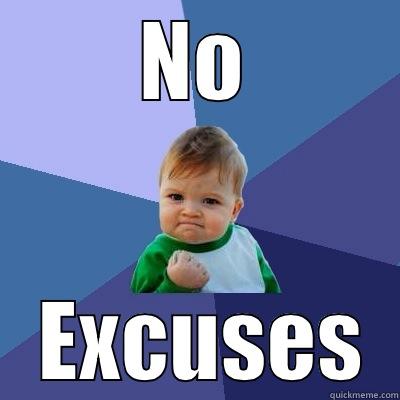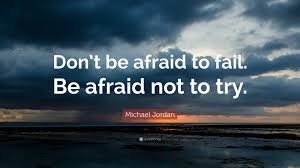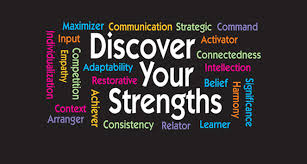How Much Do Your Weaknesses Matter? Learn How to Minimize While Maximizing Your Strengths for Success
Rev. Dr. Kitty Boitnott, NBCT, RScP
Heart-Centered Career Transition & Job Search Coach
The last two newsletters touched on the importance of identifying and developing your strengths. I have offered ways to identify your strengths. And I have provided ways to become aware of your weaknesses as well.
Knowing yourself well can help you to live the life you want and choose the happiness you deserve. The fact is you can be successful when you understand what you are naturally good at doing. Knowing your strengths doesn't mean that you can ignore your weaknesses. But being self-aware can help you develop your natural abilities. At the same time, you can do what you can to minimize your weaknesses. The fact is you will get along better if you focus on working from a place of strength. See below some suggestions for how to go about that.
Start by Understanding the Truth
Make choices based on what is, not what might be, or even what you think it will be in the future. Deal in reality. Make your decisions based on now. What are your strengths now? What can you do right now? Focusing on reality gives you an opportunity to realize what you can’t do. Success is based on who you are and what you know right now, not what you don’t know.
For example, let's say someone wants to become a surgeon. If they think they should know everything about anatomy and surgery before even starting their studies, they are sunk on day one. You have to start where you are.
The smart student will know to focus on what they already know. They are also clear about what their specific skill set is. In general, a successful medical student is good at memorization. If memorization is a strength, they know what they’re capable of learning and how they learn best. They won’t focus on what they don’t know yet. They will focus on taking steps toward a future they know they want which is being a surgeon.
Center Your Activity on What You Can Do
Focusing on your strengths doesn’t mean you have permission to give up if something is hard for you. After all, you may run into a roadblock or two along the way. It just means you have to find a way around the hard part to get to the good part. For example, if you want to be an author, you may write five days a week, 10 hours a day and still not feel like you are making progress. You may have to write some on Sunday until you’re done with your book to see success. The point is, it can be done if you have a plan. Focus on "can," not "can’t." And when challenges arise as they inevitably will, be a problem solver and figure out how to address them.
You Can Do More Than You Think You Can
Remember, you can always push yourself just a little farther than you think you’re capable of going. One more push up, one more page of a book, one more step on your walk. It can always be done.
Arnold Schwarzenegger once said, “The mind is the limit. As long as the mind can envision the fact that you can do something, you can do it, as long as you really believe 100 percent.” And he walked his talk, creating success beyond anything most people might ever dream. But he knew what he wanted, and he figured out how to make it so.
And Arnold Schwarzenegger is not the only example of someone who overcame challenges in life. There are plenty of examples of people who have accomplished amazing things in spite of difficulties. All they had going for them in many cases was their talent, skill, and a love of what they wanted to do.
Take Amanda Mercer, for example. She was a mom who spent years training to swim in a relay race across the English Channel. She wanted to bring awareness to Lou Gehrig’s disease. She came down with breast cancer during training, but she did not stop. She met her goal just a couple of weeks after finishing her last round of chemo. She broke the world record by four minutes.
How about Rick Hohn? He has cerebral palsy but is a motivational speaker from California. He’s also an accomplished artist, a pastor, teacher, and author. He doesn’t allow his limited mobility to stop. He is achieving more in his life than many able-bodied people.
If there is something you really want to succeed at doing, you can find a way. Use your natural talents and abilities. You can do whatever you truly desire. Don’t let a lack of training, time or anything else get in your way. You can push just a little bit more and make it happen if you really love it and really want to.
Don’t Make Excuses

It can be far too easy to fall into "excuse" territory. Life does give you lemons sometimes. You may need to find a way to leverage other people’s talent where yours is lacking. You may need to work a little harder than someone else to get the same results. But, given time and effort, you can take your talents and turn them into a great success. It’s your choice.
Let me offer myself as an example here. I went for my first Master's degree in the mid-1980's after deciding to stick with my teaching career. I had experienced a few restless years and had thought about leaving education. But at the end of the day, I decided to stick with it. Once I made that decision, I decided to get a Master's degree to maximize my earning potential.
I started a program at a nearby university, and I really enjoyed the work. I did well, and I graduated in the spring of 1987. On graduation day, one of my classmates asked me, "So, Kitty when are you going to start on your doctorate?" I was shocked. I had never entertained the idea of going for a doctorate. I wasn't "smart enough" to do that! Or at least that was what I told myself.
Fast forward to 2000. I was finishing up a second Master's degree. Someone asked me about continuing with the program to get a doctorate. I balked. For one thing, I thought the only reason to get a doctorate was if I wanted to be a Superintendent. I knew I did not want to do that. I was also not sure (yet) that I could earn a doctorate. I still thought I wasn't "smart enough" to tackle such a lofty goal.
By 2003, my thinking about what I could accomplish had changed, however. I had completed the work for my National Board Certification, and I was feeling confident. I decided to go for it after all those years. I could have been complete with my doctoral studies long before if I had had the confidence to do it in 1987. But I wasn't ready then. I made an excuse for myself that I wasn't "smart enough" to get a doctorate. And I stuck to that "story" about myself for years.
In 2007, I marched across the stage for my VCU graduation, earning a Ph.D. in Educational Leadership. It turns out I was "smart enough." But here's the thing. If I was "smart enough" in 2007, I was probably "smart enough" in 1987 when I got my first Master's degree. I was just busy making excuses for myself in the meantime.
What excuses are you making for yourself?
There are, of course, some weaknesses that you may need to work on more than others. We all have weaknesses. So, they are not something to be embarrassed about. And, of course, not every weakness is an "excuse." Some are definitely legitimate and may keep you from going for what you want. If one of your weaknesses has to do with a physical, mental, social or spiritual realm, then it is important that you continue to try to work on it, however. For example, if you are afraid of water, but you want to complete a triathlon, you’ll have to overcome that fear first.
If you focus on your strengths instead of worrying so much about your weaknesses, you will likely experience success faster. Many people who aren’t well-rounded are still successful. But one thing is sure, and that is they don’t dwell on what they can't do well.
Place your trust in what you can do well.
Know (or try to learn) to first focus on what you know right now. Consider what you can do now that can lead to real success in the present. Starting with what you know is the best formula for long-term success. It is the right path to success. And whatever you do, avoid making excuses for yourself.
Become the type of person who takes responsibility for your actions. Then you can become the type of person who chooses success over excuses. Also, you need to learn to believe in yourself and your abilities to succeed. The way you develop a belief in yourself is much the same as you develop a confidence in others. That is through the experiences you have. The more you experience feelings of success, the more you’ll believe you can keep on being successful.
Even if you’re scared, start small at first.

Take the time to visualize how success looks. Don't focus on any roadblocks that may get in your way. Most barriers are mental, anyway. The key is to stay focused on your strengths instead of weaknesses. And just get started. Everything else later will be easier than getting started.
Tools to Help You Identify Your Strengths

There are numerous tools that you can use to help you understand yourself better. Assessments can assist you in getting to know your strengths. And they can help you know what first steps you need to take to choose your road to success.
Here are some assessments you may want to check out:
· 16 Personalities – This website offers some free and paid online tests to help you learn your personality better. It’s based on the work of Jung and Myers personality types. The test is designed to give insight into your natural abilities and skills. Be as honest as you are capable of being when taking the test. There are no wrong answers. Be truthful.
· Truity.com – Also based on Myers-Briggs, this personality test has a free version, too. It focuses on finding your four-letter personality type. You can use that information to understand how you work with yourself and others.
· Sharecare.com – Your health is an important part of being successful. Take these health assessments to find out where you stand in terms of your age, risks and more. Staying healthy gives you more time to choose your success.
· Gallup Strengths Center – Gallup strength finder has been around more than 50 years. They’re experts at helping you discover your strengths.
· Find a Life Coach – Sometimes you may need some outside help. An objective party can help you find your strengths in a way that a relative can't. You can find a coach using an online directory like The Coach Connection. Or you can ask your colleagues if they can recommend someone.
· Get a Mentor – Seek out a mentor who will help you determine and improve upon your strengths. Remember, mentors, are not strangers that you ask. They are people who are ahead of you in the career (or personal) track that you want to be on and know your potential.
· Your Community – Check with your local college or university to find out if they have a career center. Often they’ll have guest speakers or other programs to help you learn your strengths.
Using these tools to help you determine your strengths will go far in helping you know how to leverage them. Choose the type of success you want to experience in your life. That’s right. You really can choose to be successful.
Until next time.
|